In motion
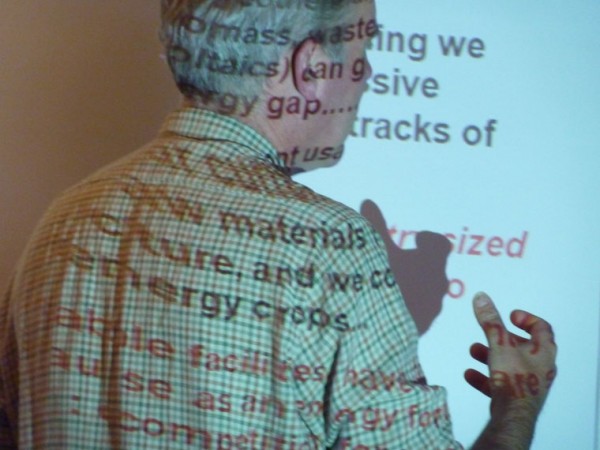
The weather’s closing in, grey spray above and below, as we travel up the Sound of Mull to Tobermory. We’re all here, 12 artists and scientists and 3 crew, crammed, wedged and folded into our cabins on Song of the Whale, absorbing the practical details of life on a boat: sea toilets and life jackets, gas alarms, hatches, winches, blocks and switches: the multiple tripping, slipping, and lurching hazards involved in moving about on a rolling object in a shifting sea.
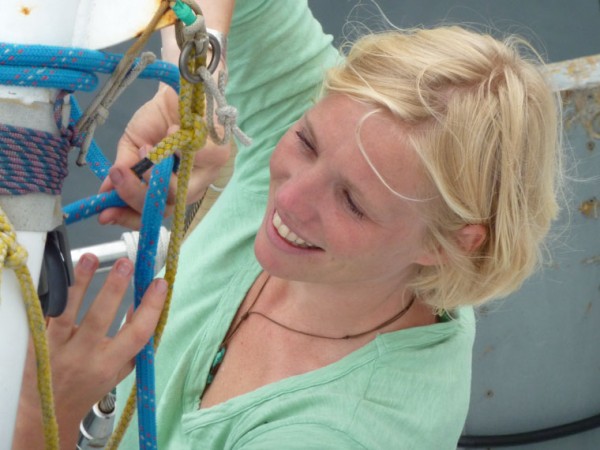
On Friday morning we picked up Gaelic poet and Sabhal Mòr Ostaig writer in residence Rody Gorman from the pier at Oban. Then a short hop north to Dunstaffnage, home of the Scottish Association for Marine Science, where we met up with scientists Emily Venables, Kyla Orr and Ruth Brennan, who’ll be joining us in weeks 2 and 3. Director Laurence Mee mapped out the centre’s research programme in marine ecology, Arctic monitoring, renewable energy, biofuels and sustainable management of ocean resources. Established in 1884 and now part of the distributed University of the Highlands and Islands, SAMS is the only institution of its kind on the west coast of Scotland. Its researchers are engaged at local, national and EU level with issues of policy, practice, knowledge transfer and commercial application of new marine technologies. Kenny Black, director of Marine Bioenergy Scotland, introduced us to the wonders of macroalgae (seaweed). Growing in abundance in these cold waters, seaweed’s been harvested by islanders here for thousands of years; hauled up from the beaches to fertilise the shell sand and acidic black soils, to feed sheep and cattle, to provide fuel in the absence of wood. Kelp – a form of processed seaweed – was extensively used in the 18th and 19th centuries in the production of soap and glass. A thriving kelp industry – based on exploitation of the labour of island farmers by clan chiefs – pushed island populations to their historical maximum in the early to mid nineteenth centuries, but the market collapsed with the end of the Napoleonic Wars. Now seaweed’s time has come again, this time as a cultivated, fast-growing, high energy resource with multiple uses in the food, cosmetic and biofuel industries. It’s still in widespread use as a fertiliser across the Western isles, and contributes to the managed health of the coastal crofts and the wonderful flavour of local fruit and vegetables.
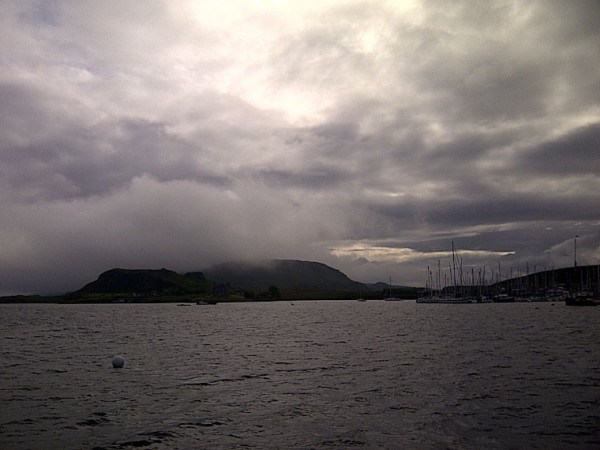
From Dunstaffnage to Lochaline, up the misty Sound of Mull, where we tucked in to the quiet bay, looking across still water to Morvern and the wooded Ardtornish Estate. We buzzed ashore, and tramped up to the Whitehouse Restaurant above the ferry terminal in our fetching red life jackets. Set up 8 years ago by Jane Stuart-Smith, the Whitehouse serves delicious, imaginative, locally sourced food, which we devoured in noisy happiness with Jane and her husband Hugh Raven, who runs Ardtornish with the same commitment to local resources, stewardship and sustainability. At the end of the evening the rain had set in, and Vicky Long grimly prepared to set up her tent somewhere on the shore (we’ve got more sailors than berths, and one of us has to camp ashore each night), but Hugh and Jane took pity on her and whisked her off to a medieval castle on the estate, where she lolled about in a four-poster bed for the night and bounced back on board in the morning, rested, washed, glowing and smug.
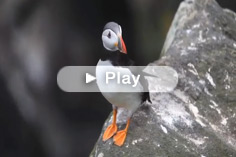

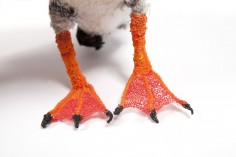
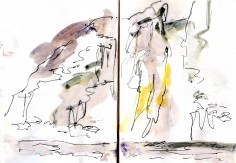
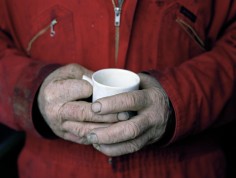
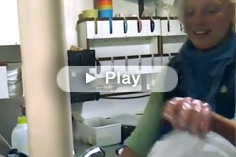
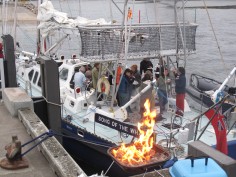
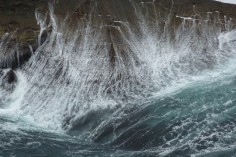
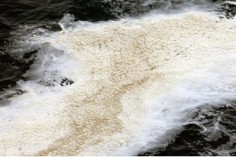
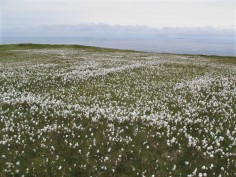
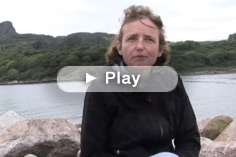
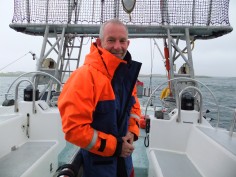








Ruth,
Well done all though probably today you are getting full wind and sea. I am sorry to miss the feast but Nick Drake and I were at the National Maritime Museum giving a reading of his poems and a discussion about what you are exploring, curious and with a tenacious spirit. Last week I gave a presentation at the RAPID conference of international scientists – if a bye product of our climate enquiries is a bringing together of the arts and scientists then this is for the good and possibly a good pointer to the future. One of the scientists was from SAMS so pleased you had a good meeting there. Good luck on EGG and can’t wait for more stories. Great re Vicky and four poster beds, alas that might be her last time in such luxury on this expedition. Hugs to all, David
jammy vicky
It looks pretty dark and cold up there, but I think is expected to improve. We love you Roo. Whole world of politics, media and police imploding without you! xxxx